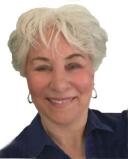Attention
Paying Attention During Uncertainty
What we choose to pay attention to can ease uncertainty.
Posted April 10, 2020

There is a deep motivation arising within me to express something to you. I have written down thoughts, tossed them, written down more and more, and tossed them all. Why? As I read them, they seemed so inadequate for the current situation we all share: the invisible presence of the COVID-19 virus. The distressing visibility is its impact on people and our interdependent systems.
There are so many different situations people are in. Some have loved ones sequestered in an ICU, some have lost jobs and have no income, some have family members to care for, and maybe most are just plain confused and scared. Others live in safer locations, have the latest technology to connect distantly, and have the necessities to keep going for months of “stay in place.” Nothing about this is fairly distributed to ease the minds of those suffering the most. Everything about this is uncertain.
Or is it?
One certainty is that responses to this situation will vary: How can I financially profit off this? Nobody can tell me I have to stay in my house! How can I get the necessary supplies to the stranger down the street? How do I homeschool my children? The commonality in these responses is the use of “I.” Each reveals one’s personal viewpoint of what to do, filtered through one’s priority of values.
Another certainty is that blame will be projected onto others: The situation is getting worse because you are not doing a good job, even though I am. This is a hoax by so-and-so. It’s your fault you didn’t get your own needs met, even though I have what you need. This is all because of that ethnic group. Responses that lack verified evidence are often attempts to divert attention from the irresponsibility of the blamer. It is important to distinguish this from honest, factual investigations of a lack of responsible actions that harm others.
In other words, what is certain about this situation is there will be conflicting views, whether they are about leadership, rational choices, optional solutions, or more. It’s the nature of people. What is dangerous about the division this incites is that innocent lives and livelihoods continue to be lost. Sadly, the division also blinds us to a much more significant certainty, a beautiful one.
For me, there is a beautiful certainty that needs to be given our highest priority. It is the unquestionable certainty that our nation has diverse means and skills to meet both the invisible and visible challenges faced in this pandemic. What is not so certain is that we will use them wisely.
I believe in our nation because I believe in the deep-rooted goodness of our residents. Some of that goodness may have been covered over, especially in recent years, by lies, misdirection, and manipulation equivalent to brainwashing. Inherent goodness may have been suppressed due to people in power repeatedly denying the value of a person or group, repeatedly arousing hatred and fear, or repeatedly using irrational thinking. In other words, indestructible goodness is struggling under layers of intentional dissension claiming to be “normal.” It is not! It is a malevolent manipulation of our need for social connections and to be valued by a group.
It’s time to stop! It’s time to stop the expansion of our national self-destruction brought on by hatred, greed, prejudice, injustice, and deceit, all of which can become immoral addictions that lock us into harmful behaviors. It’s time to look elsewhere for honorable motivations. COVID-19 is a horrible teacher who hits our knuckles with a ruler because we won’t pay attention. For each of us, our crucial choice now is to pay attention to our deepest goodness.
It is not only “what” to pay attention to, but “how” we do so. Each of us must choose willingly for the betterment of us all. I can only offer suggestions. Pay attention with your deepest, truest heart. Pay attention with your compassion, your kindness, your generosity, your patience, and your willingness to give what you value for the sake of others in need. Give your understanding, your support, your honest belief that we are ultimately connected, not divided. Give as much as you can possibly imagine and then some more. (Our health care workers are beautiful examples of the human capacity to do this.)
Include giving to yourself, but with a reevaluation of what your fundamental needs truly are, not what some advertisement or self-proclaimed demigod told you they should be. If you give gifts through your heart to others, you will experience the giving to yourself as well, for this is what happens when we are united in purpose. Our shared purpose can awaken what already exists, but we have not yet seen. Our shared purpose can expose our common fears and help us get past them with our combined strength. Another purpose of overcoming the COVID-19 pandemic is to practice cooperative caring for reasons yet to appear: to overcome even greater challenges that will face us as future transformations take shape within cultures, economies, nations, climate, and what is yet unknown.
I believe we as a nation and as a member of a global community are nearing a critical moment to a future we must not take for granted. We will need to shed accumulations of meaningless distractions from who we really are as exemplars of humanity. Every day through this pandemic, we will likely have something to pay particular attention to, to make difficult decisions about, or to choose to express as our most honest and caring gift.
As we face our individual situations, may we pay attention to our common purpose, be inspired by our deepest goodness, and grieve and heal together as a nation. Together may we share our diverse means and skills to meet this challenge with wisdom and sincere lovingkindness. I believe we can do this. Many have already been doing so. Of that, we can be certain.
© B. A. Luceigh, April 10, 2020




